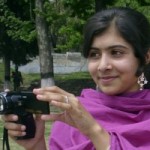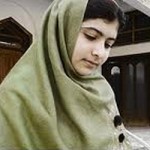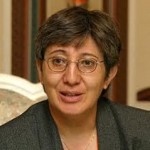Division between Afghanistan and Pakistan still contentious.
by Abubakar Siddique
Foreign diplomats visiting Kabul tread carefully when it comes to the Durand Line, knowing full well that the colonial-era border separating British India and Afghanistan is a touchy subject.
Merely affirming a long-standing policy when it comes to the contentious demarcation can be viewed by Afghans as a step too far, as the US special representative for Afghanistan and Pakistan, Marc Grossman, discovered following an interview with a private Afghan television channel this week.
"Our policy is that border is the international border," Grossman said on October 21. "I think it is time to lift everybody's vision here to a regional conception of what the region could be."
Washington considers the Durand Line — established by British India and the Kingdom of Afghanistan in 1893 — the modern-day border between Afghanistan and Pakistan.
It was no secret that Washington considers the Durand Line — established by British India and the Kingdom of Afghanistan in 1893 — the modern-day border between Afghanistan and Pakistan.
State Department spokeswoman Victoria Nuland offered reminders of that fact during an October 23 press briefing in which she was questioned about Grossman's comment. "Our policy on this has not changed," she said. "It was correctly stated by Ambassador Grossman that we see this as the internationally recognized boundary."
But the comments have nevertheless raised hackles in Afghanistan, which has not recognized the Durand Line as its eastern border since Pakistan's partition from the British Raj in 1947.
The Afghan daily Weesa this week quoted several Afghan lawmakers describing Grossman's statement as interference in domestic Afghan affairs.
And the official reaction was curt, with the Afghan Foreign Ministry issuing a statement on October 23 saying that Kabul "rejects and considers irrelevant any statement by anyone about the legal status of this line." The status of the Durand Line, the statement added, was a matter of "historic importance for the people of Afghanistan."
'An Issue For Pashtuns, And Pashtuns Only'
The Durand Line is indeed divisive. It runs directly through traditional Pashtun lands, splitting one of the world's largest tribal societies in two. Those to the west of the line are Afghan; to the east Pakistani.
Abdul Ghafoor Liwal, the head of Kabul's Center for Regional Studies of Afghanistan, says the Durand Line is considered a top national issue in the country, but one that is up to the Pashtuns themselves to decide.
"Recognizing the legitimacy of this line is in the hands of the masses that live on either side of the border. This is also the formal position of the Afghan government," Liwal says. "This is why the Afghan government has protested against this [Grossman’s] statement."
The United States is not alone on this issue, as new US Ambassador to Afghanistan James Cunningham noted. "The United States, as many other countries, have long recognized the Durand Line as the boundary between Afghanistan and Pakistan," he told journalists in Kandahar on October 23.
But there are those in Afghanistan who would rather not be reminded of that fact. "I think talking about such [controversial] issues will have negative consequences for relations between America and the people of Afghanistan," Aryan Yoon, a member of the foreign-relations committee of the Afghan parliament, said this week. "I think it will benefit both countries if we desist from talking about such issues."
Liwal, whose government-funded think tank researches strategic and foreign-policy issues, says most Afghans still dream of a return of the much bigger and united Afghanistan that existed before the advent of European colonialism in South Asia.
Modern Afghanistan emerged from the fragmentation of the Durrani dynasty, an 18th-century Pashtun empire based in the southern Afghan city of Kandahar.
Modern Afghanistan emerged from the fragmentation of the Durrani dynasty, an 18th-century Pashtun empire based in the southern Afghan city of Kandahar. Internal rivalries and wars eventually weakened the dynasty's hold on regions that today constitute Pakistan and northern India.
The arrival of the British in northern India in the 19th century posed a major challenge to the Afghan and Turkic powers that had dominated the subcontinent for centuries. After losing a major war to the Afghans in 1842, the British eventually captured parts of Afghanistan and formally annexed them through an arbitrary treaty in 1879. Their forces occupied Kabul at the time.
The contentious 1893 treaty between Afghan King Amir Abdur Rahman and Mortimer Durand, the foreign secretary of British India, formalized the areas under the control of the two governments.



